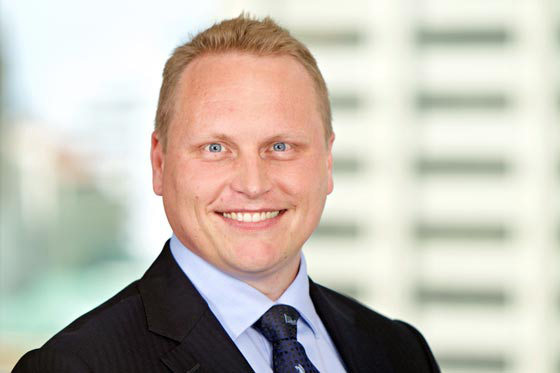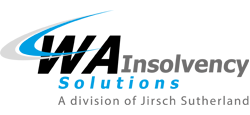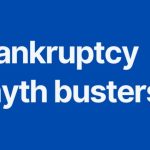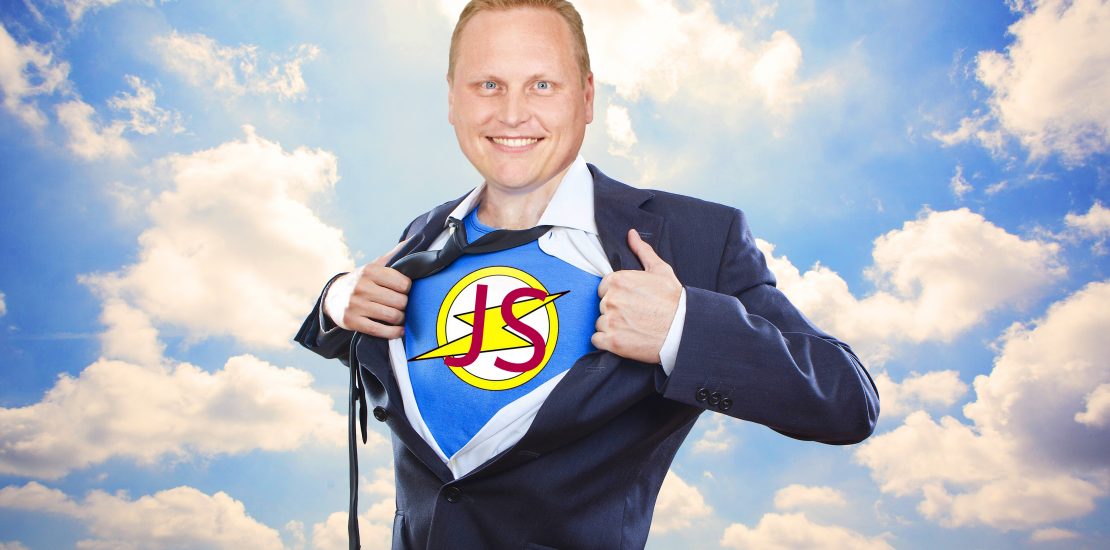From rubbing shoulders with Hollywood heavyweight, filmmaker Darren Aronofsky to restructuring one of the largest labour hire and recruitment companies in Australia, Jirsch Sutherland Partner Chris Baskerville is never short of a compelling story.
Born and bred in Brisbane, Chris started his professional career as a Graduate Accountant with Adrians Chartered Accountants in the Queensland capital, followed by a stint working in the family business in the hospitality sector. However, his fledgling finance career was met with two significant changes – introduction of the GST and an alluring invitation from a friend to join a start-up film production company on the Gold Coast.

“I was in my early 20s and the thought of doing trust account audits for the rest of my life didn’t sound very enticing, so I seized the opportunity and ran with it,” recalls Chris, a father of four. “But these guys didn’t need a film accountant, they needed a financial controller, so I was in way too deep!”
With cash pouring in and everyone “young and dumb”, Chris says there was only one problem: they weren’t making any revenue because they were spending all the shareholder money.
“The best thing we did was produce a pilot that no one wanted,” he says.
Unsurprisingly, they all went broke.
“If I went back in time with all the skills I have today, that outcome would be totally different,” he laughs.
While Chris never made it to the top echelons of Hollywood, he did end up with some impressive bragging rights – working on “Returning Lilly”, starring Virginia Madsen and Jason Mamoa and later the Darren Aronofsky drama “The Fountain”, starring Hugh Jackman and Rachel Weisz. He was also fortunate to meet Donald Sutherland, Ray Winstone, Ewen Bremner, Matthew McConaughey and Owen Wilson at a 50th birthday party hosted by Ray Winstone on the Gold Coast, all of whom were working on the film “Fool’s Gold”, which was filmed in Port Douglas and the Gold Coast.
“Who would have thought that 20 years later my insolvency skills would lead to a producer’s credit with the Australian film Boar?!” he says.
The path to insolvency
After the Australian film industry went into a downturn and Chris found himself on unemployment benefits, the disappointed and slightly depressed 25-year old decided to apply for a job with Worrells Solvency and Forensic Accountants as the Graduate Accountant.
“My supervisor was 21; it was quite an adjustment,” he says.
After three years with Worrells, Chris joined KordaMentha (QLD), which at the time was the new kid on Brisbane’s insolvency block.
“I really wanted the experience of a big firm and they were winning some pretty big jobs,” he recalls. “One of the largest Voluntary Administrations I’ve ever worked on had roughly $200-million in real estate assets involving multiple banks. So, we divided all the assets geographically and each office became responsible for the assets in their area.”
After KordaMentha (QLD) was acquired by multi-national FTI Consulting in 2012, Chris says there was a “two-year honeymoon” where it was ‘business as usual’. Then, he explains, FTI put the “international shareholder screws on”.
“Suddenly we went from a firm that loved its people and were quite caring and nurturing, to one that considered you either a one or a zero; you were either producing work or you weren’t,” he says.
Feeling particularly dejected after one meeting, Chris’s colleague Marcus Watters passed on a LinkedIn enquiry he had been sent by a recruiter about a potential partnership in Brisbane. Long story short, that meeting led to Chris being offered a position to work with Jirsch Sutherland.
“And, just to make the story even more interesting, three years later I was able to play a part in not only Marcus joining Jirsch Sutherland but also Ginette Muller, who also worked with us at KordaMentha and FTI Consulting,” he explains.
Setting the benchmark with Jirsch’s “obscure Creditor’s Trust”
Since joining Jirsch, Chris says the feather in his cap “that hasn’t been beaten” is a Voluntary Administration that Sule Arnautovic, Chris and Glenn Crisp were appointed Administrators of.

“It was for the Rubicor group of companies, which collectively turned over $160-million per annum and was listed on the Australian Stock Exchange at a share price of five cents at the time,” he explains. “The company was weighed down by $20-odd-million of due and payable debts (mainly taxation) but we were able to trade the company on and not lose one staff member or client. We also managed to get a Deed of Company Arrangement through that saved the company between $14-15-million in liabilities.”
Not only that, says Chris, but they incorporated a very complex structure called a Creditor’s Trust – typically used for large restructuring – to help remove the stigma of an External Administrator supervising the company and park all the obligations in another entity (trust) to be administered by Trustees.
“I learnt that from KordaMentha and I had developed this strategy in line with the corporate advisor before we started,” he explains. “I said, why don’t we do a VA and DoCA, immediately effectuate the DOCA and put the obligations into a Creditor’s Trust to expedite the process – and that’s exactly how the process ran.”
Photoshopped image by Tim Bradley











